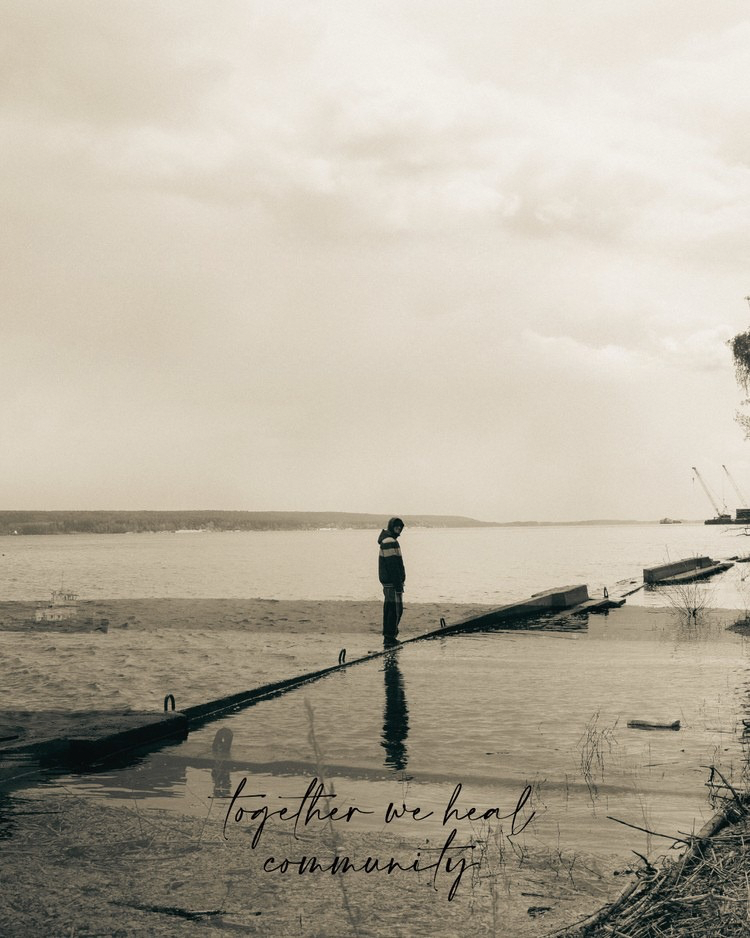Grief has a way of pulling us inward. Isolation is our body’s way of coping with the emotions that are just too difficult to share with others. Especially during the holidays — a season built around togetherness — the contrast between what once was and what is now can feel even more painful. When we’re hurting, it can feel safer to retreat — to turn down invitations, to stay quiet, to sit with our memories and our pain. Yet while solitude can offer moments of reflection, too much isolation can deepen the ache of loss and inhibit joy, peace and moving forward.
Many people who have lost someone significant are naturally lonely, because duh, they lost their person. They isolate out of response to their loss, but prolonged periods of being “alone” or “lonely” will lead to many health complications including physical health decline, Mental health challenges, Decreased self-worth, and Reduced emotional resilience. These often spiral into depression. Depression>no hope>self-harm>lack of will to live. Isolation, in a nutshell becomes dangerous!
Connection is one of the most powerful healers we have. Connectedness leads to finding meaning and purpose with others. When we’re with people we enjoy, our body shows us with a flood of beneficial endorphins. These good chemicals in the body actually help fend off depression. Sharing space, stories, and simple moments with others reminds us that we are not alone in our grief, even when it feels that way. Reaching out might not erase the pain, but it can lighten its weight.
Here are some tips to combat isolation and bring connection.
Validate your feelings of loneliness. “Validation is a powerful tool in dealing with loneliness. When we validate our own loneliness, we acknowledge and accept our emotions without judgment. By recognizing that feeling sad, angry or overwhelmed is perfectly normal, we grant ourselves permission to fully experience these emotions.”
Fight the urge to isolate. Yes, it’s often easier to be by yourself and be sad. However, there is no gain to prolonged isolation. In this space, your mind convinces you that no one will understand. This belief leads to being disconnected from others.
Seek opportunities to connect. Start on our Calendar of Events page…we have ongoing workshops and events that connect grievers and supporters.
If you’re finding it hard to reach out this season, start small. Attend a remembrance gathering where you can honor your loved one alongside others who understand. Create a new ritual — light a candle, hang a special ornament, or cook a favorite recipe — and invite a friend or family member to join you. Volunteer for a cause that mattered to your loved one; helping others can be a quiet way to reconnect with meaning and community. Even a simple walk with a trusted friend, a phone call, or a shared meal can open the door to warmth and presence again.
Find ways to Stay Active. Staying active (not busy) is an excellent remedy when you’re dealing with isolation. Physical activity, even in modest amounts, can significantly elevate your mood, reduce feelings of anxiety and boost your overall sense of well-being. Get outside frequently (sun on the skin), exercise some retail therapy (in moderation), call a friend and make plans to get together.
My friend sent me an article by Libby DeLana of thismorningwalk.com just today as I was writing this that covers finding something as simple as walking to be helpful in grief.
Research community events that connect. Start with the chamber of commerce, senior living centers, local social media accounts to see what’s happening in your area. There’s literally something for everyone. (I just saw an advertisement for plant-bingo where people share their extra plants with each other!)
Give yourself grace. Negative self talk is not helpful. “Often subtle and internalized, negative self-talk can increase feelings of loneliness and disconnect, leading individuals to believe they’re undeserving.”
The path through grief doesn’t have to be walked alone. This season, let’s find the courage to reach out, the compassion to receive connection, and the hope that love — in all its forms — still surrounds us.
Sources:
Daniel Hernandez, Clinical Thanatologist, Grief Group Facilitator

